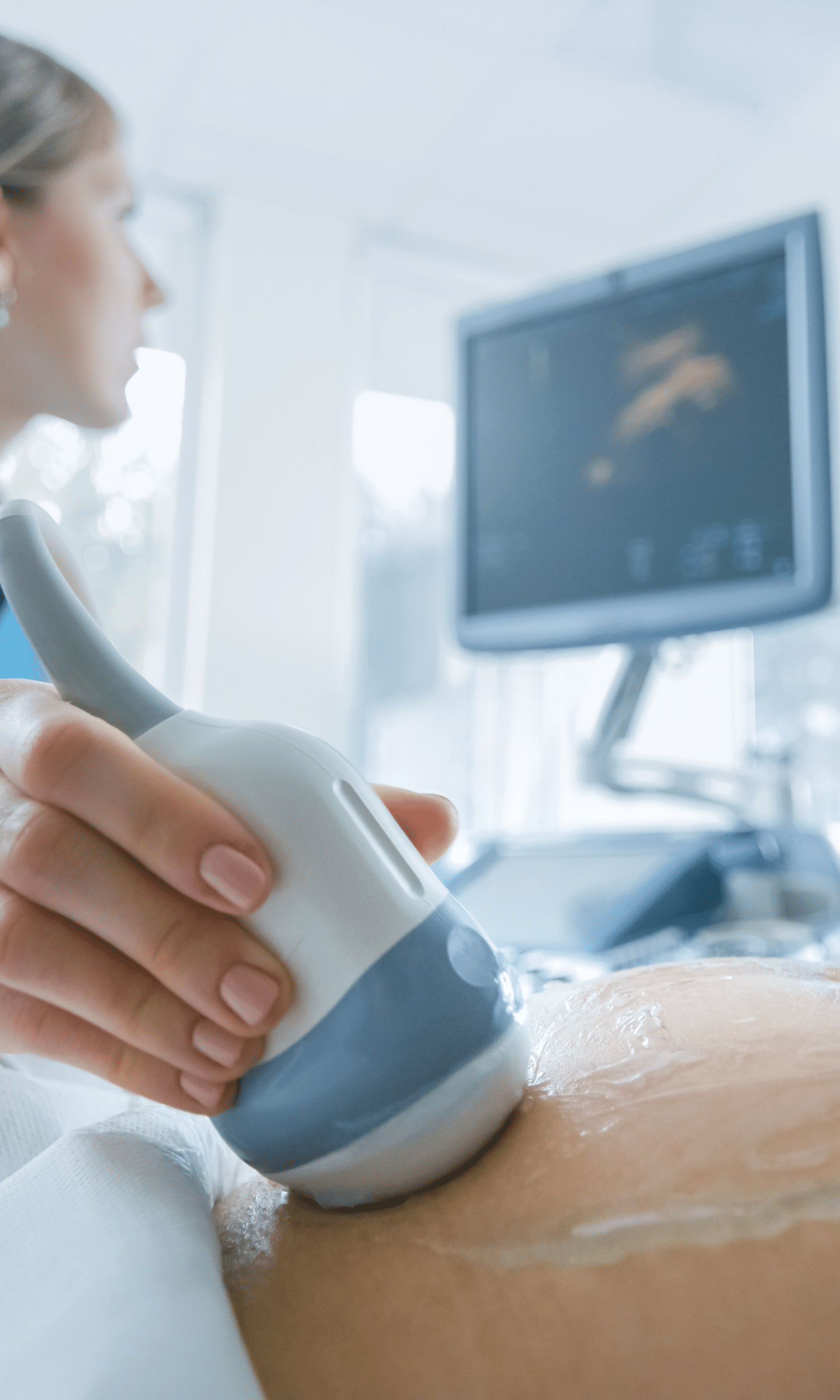OB Diagnostic Screening Ultrasounds in Kissimmee, Florida, near Orlando
Doctor Referral Required – Easy & Direct Booking
Our sonographers cannot diagnose medical conditions or provide medical opinions.
We encourage all clients to maintain regular prenatal care with their healthcare provider. Orders are required for any diagnostic ultrasounds
All of our ultrasounds are performed by registered diagnostic medical sonographers
First Trimester Screening Ultrasound - OB Level 1 (8-12 Weeks) - Early Pregnancy
During your first-trimester ultrasound, typically done around 8-12 weeks of pregnancy, healthcare professionals will perform a detailed assessment of the developing embryo to ensure that everything is progressing as expected. The following are some of the things you can expect during your first-trimester ultrasound:
Confirmation of pregnancy and determination of the gestational age of the embryo.
Visualization of the gestational sac, yolk sac, and fetal pole to assess the embryo's development.
Measurement of the embryo's size to determine if it's growing at the expected rate.
Detection of the embryo's heartbeat to confirm that it's developing normally.
Assessment of the ovaries, uterus, and cervix to rule out any potential issues such as an ectopic pregnancy or miscarriage.
The ultrasound may also detect multiple gestations, such as twins or triplets.
Overall, the first-trimester ultrasound is an important tool for assessing fetal health and development and can help healthcare professionals identify any potential issues early on. It's an exciting time for expectant parents as they can get a first glimpse of their developing baby and hear their heartbeat for the first time.
Second Trimester Screening Ultrasound - OB Anatomy Level 2 ( 18-24 Weeks) - Fetal Anatomy -”20 Week Ultrasound”
During a 20-week ultrasound, also known as the second-trimester scan, healthcare professionals will perform a detailed assessment of the developing fetus to ensure that everything is progressing as expected. The following are some of the things you can expect during your 20-week ultrasound:
Measurements and ultrasound images of the baby's major organs such as the face, brain, spine, heart, kidneys, diaphragm, chest, stomach, bladder, genitalia, limbs, feet, hands, and umbilical cord.
Assessment of the placenta's location and the level of amniotic fluid.
Evaluation of the baby's overall growth and development, including the measurement of the fetus's head circumference, abdominal circumference, and femur length to estimate fetal weight.
The sonographer will also check the cervix's length and the location of the placenta to ensure that it's not obstructing the cervix.
The baby's position in the uterus will be examined to determine the likelihood of a vaginal birth.
Overall, the 20-week ultrasound is an essential tool for assessing fetal health and development and can help healthcare professionals identify any potential issues early on. It's an exciting time for expectant parents as they can also get a glimpse of their baby's development and possibly learn their baby's gender.
Third Trimester Screening Ultrasound - OB Level (26-40 Weeks) - Growth Scan
During a third-trimester growth ultrasound, healthcare professionals assess the fetus's growth and development to ensure the baby is progressing as expected. The following are some of the things you can expect during a 3rd-trimester growth ultrasound:
Measurements of the baby's head circumference, abdominal circumference, and femur length to estimate fetal weight.
An evaluation of the amniotic fluid level and the placenta's location to ensure that the baby is receiving enough nutrients and oxygen.
The baby's position in the uterus and the cervix's length and opening will be examined to determine the likelihood of vaginal birth.
The ultrasound may also determine whether the baby is in a breech position or not.




